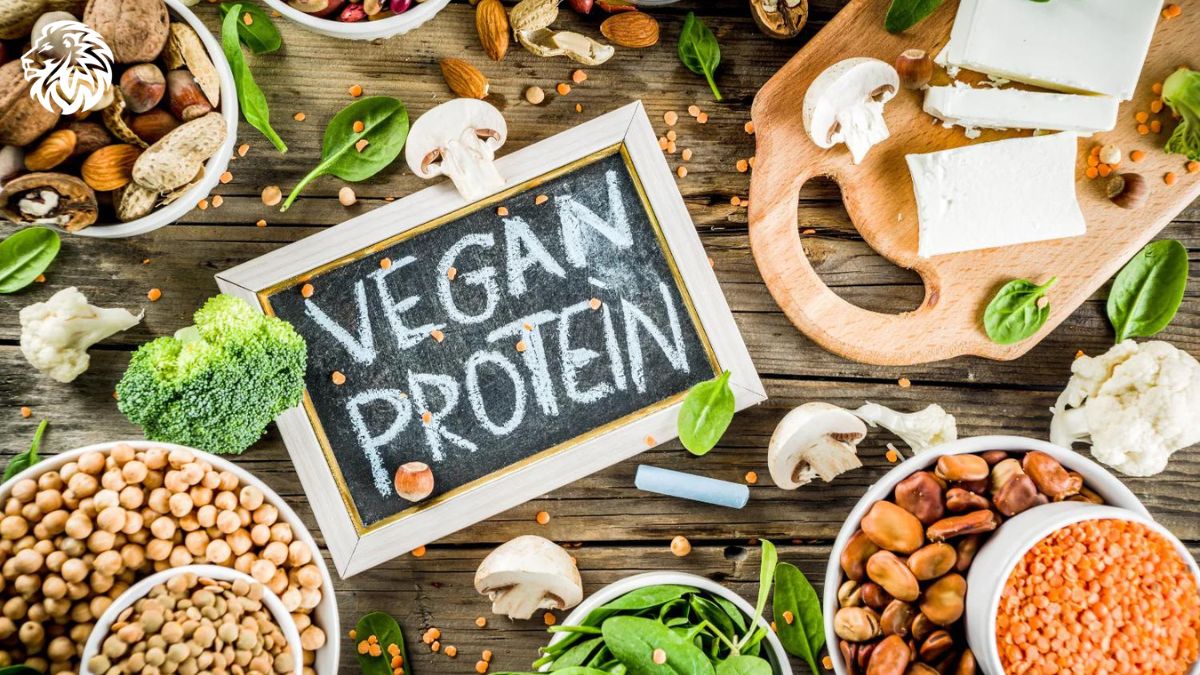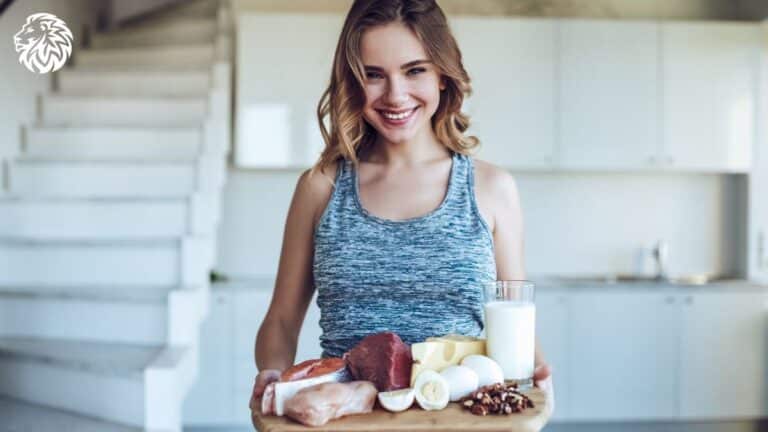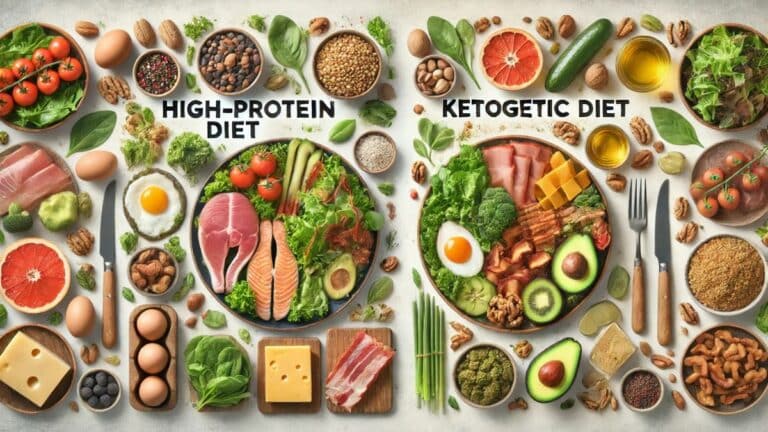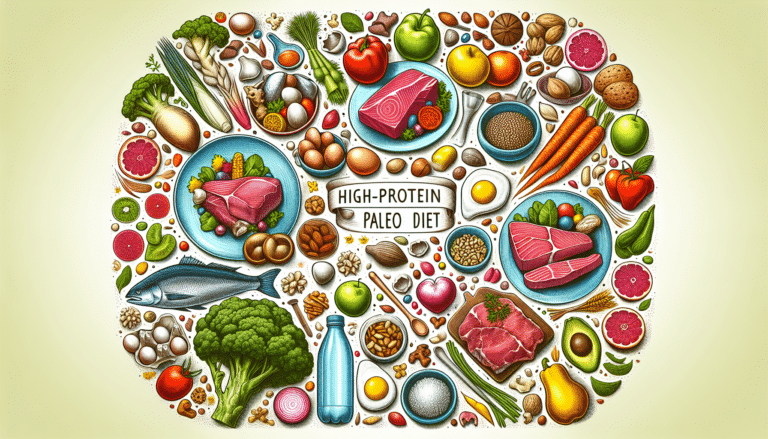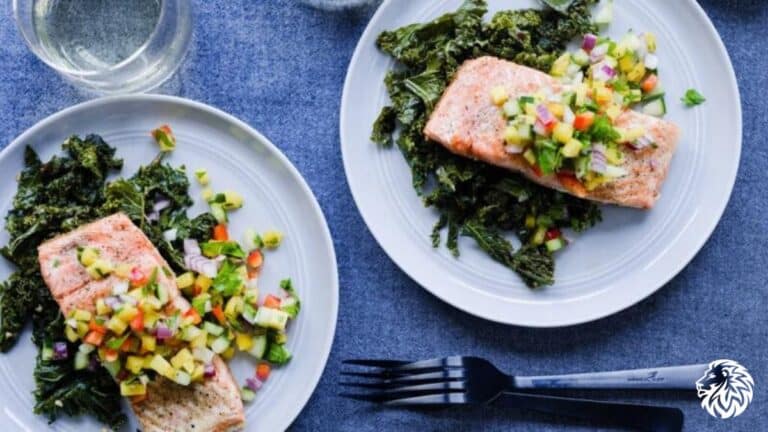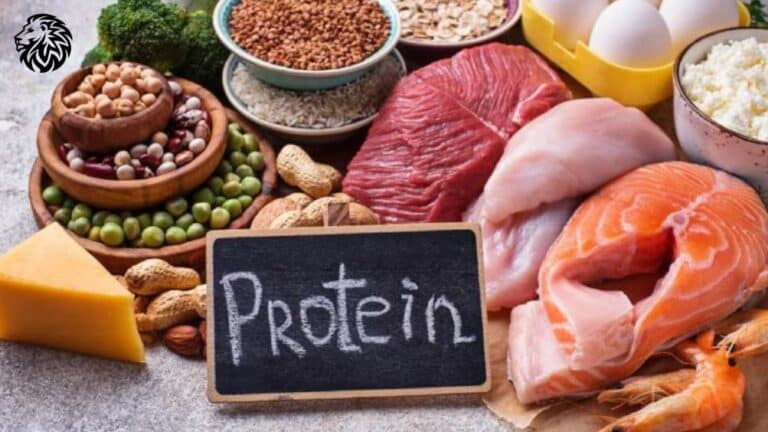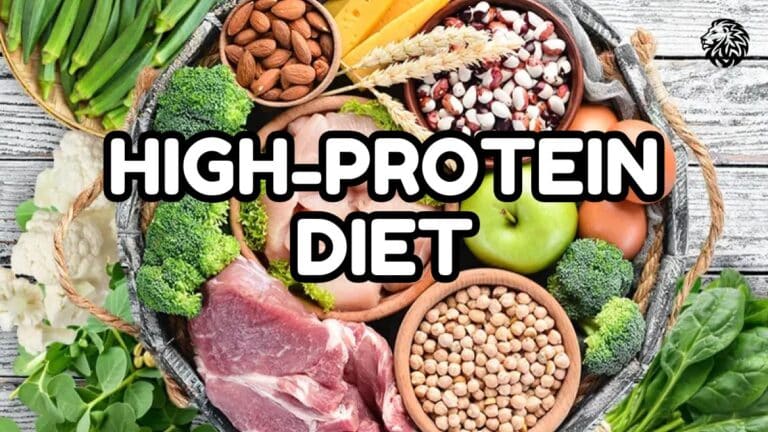Benefits of a High-Protein Diet
Importance of Protein in Diet
Protein is a big deal for keeping your body in tip-top shape. Every muscle, hormone, and enzyme is, at its core, made of amino acids—the building blocks of proteins. For those of you rocking a vegetarian high-protein lifestyle, it’s important to get enough of this vital nutrient to keep everything ticking along smoothly.
Here’s how protein works its magic in your diet:
- Muscle Repair and Growth: Ever feel sore after a workout? That’s your muscles having a melting moment. Protein swoops in, helping repair and beef up those muscles, especially if you’re keeping active.
- Enzyme Support: Think of enzymes as tiny engine oil for your body, speeding up little chemical reactions like digestion.
- Hormone Harmony: Hormones like insulin get a helping hand from protein, making sure your body stays regulated and runs like a well-oiled machine.
Health Benefits of Protein
Going heavy on the protein, especially from plants, has some perks. Check out the highlights:
Muscle Strength
Keeping muscles solid and strong is a must, and protein helps do just that. As you add candles to your birthday cake, hanging onto muscle becomes even more important.
Satiety and Weight Loss
Protein-laden foods give you that satisfying, “I’m good for now” feeling, making it easier to keep your weight in check. A protein-rich, plant-laden diet can really step up your weight-loss game. Want more scoop on this topic? Check our article on the high-protein diet for weight loss.
Heart Health
More plant proteins mean more fiber, and that’s a win for your ticker. Foods like beans, lentils, and nuts boost heart health and help fend off diabetes.
| Benefit | Plant Protein Picks |
|---|---|
| Muscle Repair and Growth | Lentils, Beans, Tofu |
| Satiety and Weight Loss | Hemp Seeds, Pumpkin Seeds, Edamame |
| Heart Health and Fiber Intake | Beans, Lentils, Nuts, Whole Grains |
Need more ideas? Hop over to our page on best high-protein foods.
Nutritional Completeness
A well-thought-out vegetarian high-protein plan can cover all your nutrient bases, ensuring a balanced diet. But watch out for those slapdash vegan diets—they might skimp on key nutrients like vitamin B12, iodine, and iron. Get the full lowdown in our guide on high-protein diet and nutrient balance.
Internal Links to Explore More
- high-protein diet meal ideas
- high-protein diet benefits
- high-protein diet plan for muscle gain
- high-protein diet and muscle recovery
With a proper grasp of how important protein is, you can adjust your eating game to match your health and fitness targets. Whether you’re beefing up, trimming down, or just aiming to feel good in your skin, protein plays a key role in making it happen.
Plant-Based Protein Sources
So, you’re diving into the world of vegetarian eating, eh? Finding good plant-based protein isn’t just about chowing down on tofu—it’s simpler and tastier than you might think. Here’s the lowdown on some yummy ways to get your plant-powered protein fix.
Lentils and Their Benefits
Ah, lentils, the little legumes that pack a punch with 18 whopping grams of protein per cooked cup. They’re more than just pretty beans—they’re crammed with fiber, folate, manganese, and iron. Lentils are like the Swiss Army knife of foods. They’re healthy and they’ve got this posse of antioxidants and goodies that keep you feeling top-notch.
Variety of Beans for Protein
Beans—your new best friends. Whether it’s kidney, black, pinto, or great northern beans, you’ll get about 15 grams of protein in every cup. They’re loaded with complex carbs and fiber, and they’ve got iron and folate galore. These versatile little guys can fit into any dish, and they’re absolutely delish!
| Bean Type | Protein (g) per 1 cup |
|---|---|
| Kidney Beans | 15 |
| Black Beans | 15 |
| Pinto Beans | 15 |
| Great Northern Beans | 19 |
Why They Rock:
- Keeps you full with lots of fiber
- Loaded with iron and folate
- Packed with healthy plant goodies
Hemp Seeds’ Nutrient Profile
Don’t sleep on hemp seeds—these tiny things are protein powerhouses with 9 grams per 3-tablespoon serving. Plus, they’re loaded up with magnesium, iron, calcium, and zinc. The omega fatty acids in them are like ninjas that tackle inflammation—healthy and tasty, all in one crunchy package!
Edamame as a Protein Source
Edamame ain’t just a fancy word for baby soybeans. A cup gives you more than 18 grams of protein and 8 grams of fiber. It’s long on magnesium, manganese, and vitamin K, making it a nutritional dynamo. Snack on them solo or toss ’em in a stir-fry—easy as that!
Nutrient Numbers:
| Nutrient | Amount per 1 cup |
|---|---|
| Protein | 18 grams |
| Fiber | 8 grams |
| Magnesium | 99 mg |
| Manganese | 1 mg |
| Folate | 482 mcg |
| Vitamin K | 41 mcg |
| Iron | 3.4 mg |
Looking for fresh ways to sneak these protein stars into your meals? Check out our other stuff on high-protein diet meal ideas and get some meal plans for weight loss that’ll have you feasting like a veggie pro.
Protein-Rich Vegetarian Meal Options
If you’re sticking to a vegetarian diet and trying to up your protein game, you got options—and we’re not talking about the same ol’ boring stuff. Let’s explore some tasty meal ideas that’ll fill your belly and pack a protein punch.
Tofu Dishes for Protein
Tofu is like the chameleon of the food world—it can blend into so many dishes and it’s packed with protein. A quarter block gives you about 15 grams of protein (ZOE). Plus, it’s loaded with calcium and iron, making it a no-brainer for your meals.
| Tofu Serving | Protein (g) | Calcium (mg) | Iron (mg) |
|---|---|---|---|
| 1/4 Block | 15 | 861 | 13.2 |
Throw tofu into your stir-fries, toss it in salads, or even sneak it into smoothies if you dare. Don’t miss out on our recipe section to shake up your high-protein diet meal ideas.
Nutritional Value of Pumpkin Seeds
Pumpkin seeds are tiny, but don’t let their size fool you—they pack over 8 grams of protein per ounce. They’re also loaded with phosphorus, vitamin K, and healthy fats (ZOE).
| Pumpkin Seeds (1 oz) | Protein (g) | Phosphorus (mg) | Vitamin K (µg) |
|---|---|---|---|
| 1 oz | 8 | 332 | 18.4 |
Sprinkle them on salads, slip them into smoothies, or munch on them as a snack. They’re an effortless way to add more protein to your day.
High-Protein Meal Plan Ideas
Here’s a cheat sheet to get your vegetarian high-protein diet rolling:
| Meal | Dish | Protein (g) |
|---|---|---|
| Breakfast | Greek yogurt with chia seeds and berries | 20 |
| Lunch | Quinoa salad with chickpeas, avocado, and spinach | 22 |
| Snack | Edamame with sea salt | 17 |
| Dinner | Lentil soup with kale and carrots | 24 |
Mix in different protein sources into your meals to cover all your bases. For more meal plans that do the heavy lifting for you, check out our guide on high-protein diet meal plans for weight loss.
Adding these protein-rich vegetarian options into your routine won’t just help you hit your protein goals—it’ll amp up your overall nutrition. For more tips on staying healthy and full of vigor, see our section on best high-protein foods.
Balancing a Vegetarian High-Protein Diet
Eating like a boss on a vegetarian high-protein diet isn’t just about avoiding meat; it’s about getting creative with your meals to make sure you don’t miss out on essential nutrients. Let’s chat about keeping things balanced.
Essential Nutrients in Vegetarian Diets
When you’re munching down a veggie high-protein diet, pay attention to getting these good-for-you nutrients:
- Protein: The magic stuff for fixing up those muscles.
- Iron: Keeps your blood bustling with oxygen and energy.
- Calcium: Mighty bones need this.
- Vitamin B12: Crucial for nerve stuff and making DNA.
- Omega-3 Fatty Acids: Hearts love them.
How to Pump up the Protein
Making sure you’re getting enough protein is a biggie. Sure, veggie folks might eat less than their meat-eating pals, but Western diets often hit the protein mark anyway.
So, how do you keep up the protein game on a veggie diet?
- Legumes are Your Friends: Beans, lentils, chickpeas – toss them in everything. They’re protein powerhouses.
- Nuts and Seeds for the Win: Munch on almonds, chia seeds, and hemp seeds to level up your meals.
- Go Big on Whole Grains: Stuff like quinoa, brown rice, and whole wheat aren’t just tasty, they’re loaded with protein and fiber.
Making Your Protein Needs a Reality
Proteins come as little amino acid goodies, and some of them are must-haves from your diet. Vegetarian? No problem. Mix and match plant goodies to cover your bases.
- Matchy Proteins: Ever tried rice and beans or peanut butter with whole grain bread? Boom, there’s your complete protein.
- Mix It Up: Keep your meals varied with all sorts of plant proteins to get all those amino acids in.
| Food Combinations | Source 1 | Source 2 | Complete Protein |
|---|---|---|---|
| Beans & Rice | Beans | Brown Rice | Yes |
| Hummus & Pita | Chickpeas | Whole Wheat Pita | Yes |
| Lentil Soup & Bread | Lentils | Whole Grain Bread | Yes |
Vegan diets can swing low on protein sometimes, but loading up on legumes, nuts, and whole grains can push you past your protein needs. For the primo list of high-protein foods, check out our post on the best high-protein foods.
You can totally rock a balanced vegetarian high-protein life with a dash of savvy meal planning. Want more tips on getting the most protein while staying veggie? Peek at our guides on high-protein diet for women and high-protein diet for athletes.
Considerations for Vegetarian Athletes
Important Bits About Plant-Based Protein
So, you’ve decided to run the vegetarian athlete marathon? Well, grab your veggies and let’s chat protein. While you’re munching on those greens, know that your meat-eating pals are munching a bit differently—they tend to get more protein and saturated fats, while you lean more on carbs. And no, that’s not a bad thing (PubMed Central)!
Here’s a quick peek at what’s on your plate compared to theirs:
| Plate Choices | Carbs | Protein | Saturated Fat |
|---|---|---|---|
| Veggie Lovers | On the high side | Could be better | Nice and low |
| Meat Munchers | Less of the carbs | Protein galore | A bit fatty |
Sure, when it comes to stuff like VO2 max, the muscle flex, and bolt-speed runs, there’s not much difference between the greens and the grills. Yet, veggie athletes did show some cool perks—more physical activity (yay!), plus better oxygen use during all-out workouts (go you!)—13% better for women and 12% for men (PubMed Central).
Stuff Your Body Needs
Keeping your athletic edge on a meat-free high-protein diet means hunting for those plant proteins and balancing the nutrient gang in every meal. Remember, the key is spreading that protein love throughout the day for muscle power and recovery goodness.
Here’s your checklist:
- Protein Partners: Mix and match your plants—think rice chilling with beans—for a complete dose of protein.
- Fiber Friends: You’re a fiber hero, boosting heart health and dodging diabetes (EatingWell).
- Micronutrient Magic: Pop some B12, iron, and calcium—go for the fortified foods or take a supplement as sidekicks.
- Calorie Check: You might lean lighter or a tad heftier than meat fans. For instance, lacto folks are about 7.3% lighter but veggie athletes may be 11% heavier (PubMed Central).
| Nutrient | Source | Tips |
|---|---|---|
| Protein | Lentils, beans, hemp seeds, edamame | Mix it up for full protein hits |
| Iron | Spinach, lentils, pumpkin seeds | Pair with vitamin C—hello, orange juice! |
| Calcium | Tofu, plant milk, kale | Keep your bones happy |
| Vitamin B12 | Fortified cereals, supplements | Keep an eye on it regularly |
For more dish ideas, catch our other reads on meal plans for weight loss, how protein pumps metabolism, and how athletes should gobble down protein.
Making your veggie diet a nutrition powerhouse can keep you strong, fast, and ready for anything that comes your way on the field or the track. Keep it colorful, and before you know it, you’ll be a green-fueled dynamo!
Potential Nutrient Deficiencies
You’re diving into the world of vegetarian high-protein diets, and it’s loaded with benefits! However, if you don’t watch your step, you might find yourself lacking some crucial nutrients. Let’s uncover common deficiencies and how to tackle them without a sweat.
Addressing Vitamin B12 Deficiency
Vitamin B12‘s your nerve whisperer and DNA’s best buddy. Found mostly in animal foods, B12 can be a tricky one for vegetarians to catch. Without it, you’re looking at issues like anemia or nerve havoc, making it crucial for vegans to consider supplementation.
| Sources | Vitamin B12 (mcg/100g) |
|---|---|
| Fortified Plant-based Milk | 1.2 – 1.5 |
| Fortified Cereals | 0.5 – 6 |
| Nori Seaweed | 1.2 |
Think fortified foods like plant milk and cereals to save the day. Still, they might not be enough, so a regular dose of Vitamin B12 supplements is your best friend.
Importance of Essential Nutrients
Take note, vegetarians: minus a good plan, you might skimp on these must-haves:
- Iron: Crucial for creating red blood cells.
- Zinc: Keeps your immune system in fighting shape.
- Calcium: Strengthens your bones.
- Vitamin D: Helps calcium keep those bones strong.
- Protein: Builds and fixes muscles.
| Nutrient | Common Sources | Vegetarian Sources |
|---|---|---|
| Iron | Red Meat, Seafood | Lentils, Spinach, Fortified Cereal |
| Zinc | Meat, Shellfish | Chickpeas, Pumpkin Seeds |
| Calcium | Milk, Cheese | Tofu, Fortified Plant Milk |
| Vitamin D | Fish, Egg yolk | Sunlight, Fortified Foods |
| Protein | Chicken, Fish | Beans, Tofu, Hemp Seeds |
Skipping on the essentials and binging on junk can spell trouble, leading to wellbeing woes (PMC). Avoid this by munching on a variety of nutrient-rich bites.
Risks of Inadequate Protein Intake
Protein’s the superhero for muscles, enzymes, and hormones. Skimping on it could make muscles break down, zap your energy, and challenge your immune system. Know your protein needs and meet them daily.
| Age Group | Recommended Daily Intake (g/kg Body Weight) |
|---|---|
| Children (1-3 years) | 1.05 |
| Adolescents (14-18 years) | 0.85 |
| Adults | 0.80 |
| Pregnant Women | 1.1 |
| Athletes | 1.2 – 2.0 |
Mix it up with plant proteins like lentils, beans, and hemp seeds. Our piece on high-protein diet meal ideas is packed with tips for incorporating protein diversity into your diet.
Mastering the vegetarian high-protein life involves being mindful of deficiencies, ensuring you’re getting a rainbow of nutrients. For extra tips on best high-protein foods and more, browse our guides to fuel up for the journey ahead.
